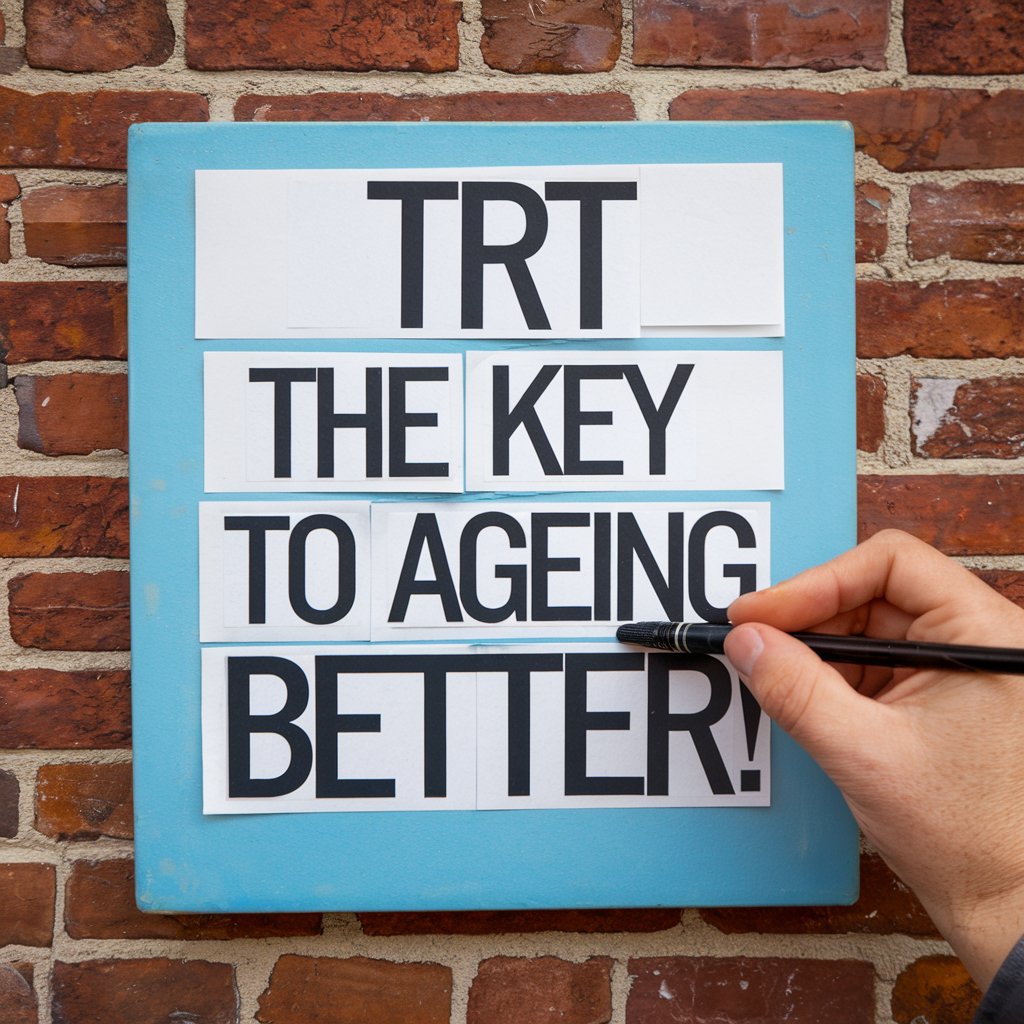An increasing number of individuals are becoming interested in taking a preventative approach to their health in order to stay in good health and to have a better quality of life as they get older. One medical treatment that is particularly beneficial for this – especially for men – is that of Testosterone Replacement Therapy (TRT).
What is TRT?
Let’s start first with testosterone. Testosterone is a type of hormone. Although it is found in both men and women, it is more commonly associated with men. Testosterone plays a really vital role in many functions in the body, from red blood cell production and muscle mass to fertility and cognitive function. Women have much lower testosterone levels than men, but it is equally important when it comes to maintaining good health.
Testosterone Replacement Therapy, also known as TRT, involves replacing or restoring low testosterone levels to bring them back to ‘normal’ if they are depleted.
TRT for men is more common. Although the list of symptoms associated with low testosterone is long, some of the first symptoms men may notice include: low libido and sexual function, poor energy levels, reduced muscle mass, weight gain around the belly, hair loss, insomnia, and low mood. These symptoms can hugely impact quality of life and don’t exclusively affect older men. In fact, many younger men can have low testosterone levels.
Isn’t TRT just steroids?
Testosterone – technically – is a type of steroid that is naturally produced in the body. Society has given steroids a bad reputation thanks to their misuse by bodybuilders. It is quite common for people to assume TRT is akin to taking an unregulated steroid to bulk up for the gym, but this is really not the case at all.
Indeed, TRT is a carefully managed and monitored treatment, the goal of which is to restore depleted levels to what they should be or what is ‘normal’ for the individual. The aim is not to boost levels above and beyond what is ‘normal’. This is overseen by a doctor who is an expert in hormones.
A good hormone clinic will not just address testosterone levels but will look at the entire hormonal cascade including oestrogen, progesterone, human growth hormone, and more to ensure all are working together in sync.
So how does TRT help with ageing?
As we age we experience age-related decline of hormones. This leads to the signs that we typically associate ageing – thinning and less elastic skin, less energy, weight gain, poor bone health, loss of muscle mass, and cognitive decline. By restoring testosterone levels and or maintaining normal testosterone levels as you get older this means that the signs of ageing are not experienced as quickly, helping you to remain healthier for longer, and maintain a better quality of life as you age.
Testosterone is most commonly associated with sex drive and so it will be unsurprising to discover that libido – or lack thereof – is possibly one of the most noticeable impacts of low testosterone for men. Many individuals with low testosterone will often report poor erection quality, a lack of sexual desire, and difficulty achieving sexual satisfaction.
A surprising – but really important – impact of low testosterone is its effect on bone health, especially as we get older. Testosterone is strongly linked to bone health and can help grow and maintain healthy bones. Low testosterone levels have been linked to increased risk of osteoporosis from decreased bone mineral density. Fractures are one of the most common causes of injury in older adults with more than one in four people aged 65 years or older falling each year. This is almost always accidental, for example tripping or slipping on the floor. The issue with this is that broken bones can be the start of more serious health concerns and can result in disability. Unfortunately, older patients who have experienced a hip fracture are almost four times more likely to die within one year after surgery than the general population (Parker and Johansen, 2006).
If you are interested in reading about this in more detail then you can take a look at this review of testosterone and bone health which was published in the Clinical Interventions in Aging journal.
Other than age-related decline, what can impact a man’s testosterone levels?
It’s not just age that can have an impact on an individual’s testosterone levels. In fact, there are certain lifestyle choices, medications and other health conditions that are to blame and can contribute.
These can include:
- Injuries to the testicles
- Chemotherapy medications
- Certain antidepressant medications
- Type 2 diabetes
- Thyroid diseases
- Problems with the pituitary gland or hypothalamus
When it comes to lifestyle, testosterone levels can be influenced by being overweight, alcohol consumption, stress smoking, and even a lack of sleep. Although the link between weight and testosterone levels is not clear, research does clearly show a correlation between the two. Research in The Journal of Clinical Endocrinology & Metabolism by Tajar et al. (2010) has shown that obese men have around 30% lower testosterone levels than men who are of a normal weight.
Using TRT as part of a balanced plan for living better
Testosterone replacement therapy is often best combined with a holistic approach to improving your health. By which we mean considering all aspects of your life and making small changes to have a bigger overall impact. This might mean moderating diet and alcohol consumption, and looking at other personalised lifestyle recommendations such as gut health and more.
If you are experiencing any combination of the symptoms we have mentioned above or perhaps you are just interested in taking preventative measures to ensure you have a better quality of life as you age, then you might benefit from testosterone replacement therapy. The best way to discover TRT in the UK is to arrange for a consultation with an experienced hormone doctor who can discuss your own individual goals, and medical history so that they can then put into place a long-term health optimisation plan for you.






